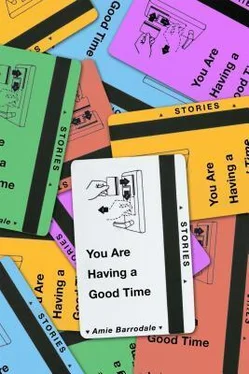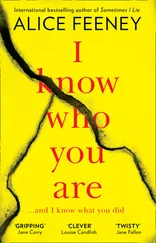“And your poetry?” Greer asked.
“I’m off it, fuck poems.”
“I spend most of my energy on my students. C’est la vie.”
“Yeah, well.” Donald tipped back his drink. “You know any parties?”
Greer did know of some faculty parties. At the first party, in the English department, Donald drank several water glasses full of scotch. It didn’t seem to affect him at all, except that his mood brightened. When the party began to wind down, Greer took Donald to a second party around the corner, where Donald switched to red wine. After midnight, he buttonholed the host’s wife.
“Ish like my frien the great John Berryman tole me. You … The man taught me to be honesh. Alienation … We lie to our parents, and we tell them, ‘I love you.’ But really I jus want her money when she dies. I want her stone mashion. I lie to my frensh. I say this work is promishing. I lie to my colleagues, same way. My bosh. Ish really promishing. Someone shows me a DOG TURD! An I say, you know, ish really promishing. You know how it ish. Course you do, you’re a woman.”
The professor’s wife was nervous. She said, “Well, that’s interesting. I think we’ve all—”
Donald railroaded her.
“I’ll be honesh. William Shawn, if you want my opinion, is a faggot. That’s my opinion, if I can be honesh. I had a tremendoush hard-on. Just like steel, I mean, lishen. We men—”
Greer suggested they go downtown to a bar he knew, where they could dance. When the bar closed, Donald was angry. He didn’t want to go home, and so they took a cab to Greer’s. Donald was sobering up.
Greer said, “Can I tell you something? And you can’t make fun of me?”
“Of course.”
“There’s a bakery downstairs. It opens at seven, but if I knock on the door they’ll usually let me in. Some late nights I go down and get a cookie.”
“I’d love a cookie!” Donald said. “I could eat a whole cake.”
Down in the bakery, Greer picked a half dozen cookies, pointing through the steamed glass, while Donald blew into his hands and stomped his feet. When they were paying, Donald pointed out a six-layer chocolate cake with ganache icing and slivered almonds pressed to the side.
He said, “And that.”
As the woman boxed the cake, a blue child’s birthday cake caught Greer’s eye. He pointed to it. “Did you ever have one of those when you were a kid? I always wanted one of those.”
“Get it. Why not?”
Upstairs, the two men sat on Greer’s bed — Greer didn’t have a table, he didn’t usually have guests — and they took turns with Greer’s fork, eating their separate cakes.
Greer said, “I really like Valentino Bucchi.”
“Who?”
Greer put on the pianoforte album. Donald stood up after a few bars and said, “It’s terrific!” He danced around Greer’s apartment, acting out the moods of the songs — by turns longing and monstrous. When Greer fell asleep he was still doing it.
At sunrise Donald was fast asleep beside Greer. The mattress was bowed by his weight, and he had kicked the sheet down, so the wool blanket was on his skin. Greer lifted the blanket and pulled up the sheet for Donald. Then he slipped out of bed.
When Greer returned to his apartment later that day, he noticed that Donald had left his briefcase behind. He opened it and found a manuscript. It wasn’t the memoir about the old woman’s famous father. It was about a society of men.
Greer was jealous. He sat at his own typewriter and began to write. He imagined another world, one like this one, but more. In this world there were only men. Close to midnight he looked up from his typewriter.
“I have something here,” he said.
Donald never called about the briefcase, and after hanging on to it for a few months, Greer thought it was best to throw it away.
* * *
Mensworld was stuck in edits. Greer’s first editor left the company, and his second suggested that they begin again. “Let’s not be afraid to get our hands dirty.”
And then something awful happened. Donald hadn’t given up on his novel. He had just begun fresh. Or maybe it had already sold. Greer didn’t know. He just saw fifty copies of Boys Boys Boys by Donald Burdon sitting in the window of a bookstore. Then he read the rave in the Times. Then he saw Donald on the cover of a magazine. He wore a beautiful white jacket, and had his arm around Gore Vidal’s shoulders.
Greer’s book came out quietly, during Donald’s paperback release. At Greer’s book party — an elegant affair, held in Philosophy Hall — his students stood and knocked their fists against the tables.
When students asked him about Donald Burdon, Greer deflected. He told them the story about Berryman in the bar, which always got a laugh.
* * *
Greer took no satisfaction in it when Donald couldn’t handle success. There were those people who did, who cravenly traded in “Donald stories.” Greer always did his best to defend Donald. But he knew Donald better than anyone else, and so he often had the best stories. “Donald had explosive diarrhea on the way to the bathroom at Elaine’s and refused to go home.” “Donald developed a painful, public, unrequited crush on Susan Sontag, and showed up on her doorstep morning after morning to recite Florentine verse.” “Donald mailed William Shawn flowers each Monday, along with contrite apologies for ‘the thing about your penis.’”
Once, Donald woke Greer close to 4 a.m., banging on his door, shouting, “I want to reach out to you with honeyed hands.”
Greer pulled his head inside and closed his window very slowly.
Several years after his first book, Donald took a teaching position in Ireland. And then for a few years, the only peep from Donald was an occasional book review. He was like an angry bear who only came out of his cave to tear bestselling books to pieces. If something was doing well, if it was regarded as a work of art, then you could count on a blistering essay from Donald.
Greer rarely heard from him. For months, he forgot that there had ever been an alligator briefcase with a manuscript inside it. Had he stolen anything at all? Wasn’t all writing, all so-called inspiration, just borrowing?
Then Donald came back to the city.
* * *
Greer made his mistake. He felt guilty. He started singling Donald out for praise. When he was asked publicly to name his favorite writer, he eulogized Donald. Then he hired Donald for a visiting appointment at Columbia.
And now, on the first day of the semester, Donald had already been disruptive.
“Thank you, Guillermo,” Greer said. “That was very helpful. Okay, well. If there’s nothing else.”
Greer was about to wrap up the meeting.
Donald raised his hand.
“Professor Burdon,” Greer said. “Yes, Professor Burdon, uh.”
Donald lowered his hand. He stood up. He held the floor in silence for a long time. His raincoat was bunched at the elbows. His eyebrows were long and wild. He looked out from under them, at the students and faculty. Then he said, “Do you remember the night we went to a donkey show together?”
“Donald. If that’s all, I think we’ve concluded the meeting.”
“For those who don’t know, this is when a woman is having sex with a donkey. Don’t go, everyone,” Donald said. “It sounds good, but in reality it’s just gross. Ben knows what’s coming. Don’t you? I wanted to kill myself, Ben. Valentino Bucci was on the radio.”
Greer looked at the other faculty members, trying to silently form a coalition. Surely Donald wouldn’t accuse him in front of his peers. But Donald had them.
“I wanted to kill myself, and it was all because of you. Do you know how little I had? I had nothing. I had nothing. And then through hard work and toil — blood and tears — I manage to shape something, and then you saw it, all formed, and you stole it. You think because I didn’t say anything that you got away with it, and nobody knew?” He looked slowly around the room. “You built your house on a lie. You’re a liar, Benjamin. You’re a thief. You’re a mediocrity. And everyone here”—he gestured grandly around the room—“everyone here knows it.” Then he took a small bow and sat down.
Читать дальше












